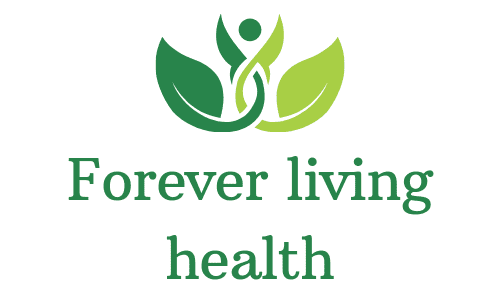- Introduction
- Understanding stress and its impact
- Importance of Stress Relief
- Explaining the need for stress relief methods
- Physical Stress Relief Methods
- Exercise
- Yoga and Meditation
- Deep Breathing Techniques
- Mental Stress Relief Methods
- Mindfulness and Relaxation Techniques
- Journaling
- Creative Outlets
- Social Stress Relief Methods
- Connecting with Loved Ones
- Seeking Support Groups
- Volunteering
- Lifestyle Changes for Stress Relief
- Time Management
- Healthy Eating Habits
- Adequate Sleep
- Professional Help for Stress Relief
- Therapy
- Counseling
- Seeking a Life Coach
- Conclusion
- Recap of stress relief methods and their importance
A Comprehensive Guide to Finding Inner Peace
Stress has become an omnipresent aspect of modern life, affecting individuals of all ages and backgrounds. Whether it stems from work pressures, personal relationships, or societal expectations, stress can take a toll on both our physical and mental well-being. However, amidst the chaos of everyday life, there exist numerous methods to alleviate stress and restore balance. In this article, we’ll delve into a plethora of stress relief techniques tailored to cater to various aspects of life, helping you find solace and tranquility in the midst of turmoil.
Understanding Stress and Its Impact
Before delving into stress relief methods, it’s crucial to comprehend the nature of stress and its repercussions on our health. Stress is the body’s regular reaction to saw dangers or difficulties, setting off a fountain of physiological and mental responses. While short-term stress can be beneficial in certain situations, chronic stress can lead to a myriad of health issues, including high blood pressure, weakened immune system, and mental health disorders such as anxiety and depression.
Importance of Stress Relief
Given the adverse effects of prolonged stress on our well-being, it’s imperative to prioritize stress relief activities in our daily lives. Stress relief not only enhances our overall quality of life but also equips us with the resilience to navigate through life’s inevitable challenges. By incorporating stress relief methods into our routine, we cultivate a sense of inner peace and emotional stability, enabling us to lead a more fulfilling existence.
Physical Stress Relief Methods
Exercise
Regular physical activity is a potent antidote to stress, releasing endorphins that uplift mood and alleviate tension. Whether it’s jogging, swimming, or practicing a sport, engaging in exercise can significantly reduce stress levels and promote overall health.
Yoga and Meditation
Yoga and meditation are ancient practices renowned for their ability to foster relaxation and mental clarity. By focusing on breath and mindfulness, these practices enable individuals to quiet the mind and cultivate a sense of inner peace amidst chaos.
Deep Breathing Techniques
Simple yet effective, deep breathing exercises can swiftly alleviate stress and induce a state of calmness. By practicing diaphragmatic breathing or progressive muscle relaxation, individuals can soothe their nervous system and restore equilibrium.
Mental Stress Relief Methods
Mindfulness and Relaxation Techniques
Care incorporates being totally present at that point, without judgment or association with contemplations. By practicing mindfulness meditation or engaging in mindful activities such as walking or eating, individuals can diminish stress and enhance their overall well-being.
Journaling
Writing down thoughts and emotions in a journal can serve as a therapeutic outlet for processing stress and gaining insight into underlying concerns. Journaling allows individuals to express themselves freely and gain perspective on challenging situations.
Creative Outlets
Engaging in creative pursuits such as painting, music, or writing can provide an avenue for self-expression and emotional release. By channeling creativity into artistic endeavors, individuals can alleviate stress and foster a sense of fulfillment.
Social Stress Relief Methods
Connecting with Loved Ones
Maintaining strong social connections is paramount for mitigating stress and fostering a sense of belonging. Whether it’s spending time with family or catching up with friends, nurturing relationships can provide emotional support during difficult times.
Seeking Support Groups
Joining support groups or online communities can offer solace and validation for individuals facing similar challenges. Sharing experiences and receiving empathy from others can alleviate feelings of isolation and boost resilience.
Volunteering
Giving back to the community through volunteer work not only benefits others but also enhances one’s sense of purpose and fulfillment. Engaging in altruistic activities can shift focus away from personal stressors and instill a sense of perspective.
Lifestyle Changes for Stress Relief
Time Management
Effective time management strategies, such as prioritizing tasks and setting boundaries, can reduce feelings of overwhelm and enhance productivity. By allocating time for relaxation and self-care, individuals can prevent burnout and maintain balance.
Healthy Eating Habits
Consuming a balanced diet rich in nutrients can bolster resilience to stress and promote overall well-being. Avoiding excessive caffeine, sugar, and processed foods can stabilize mood and energy levels, reducing susceptibility to stress-induced fluctuations.
Adequate Sleep
Prioritizing adequate sleep is essential for replenishing energy levels and supporting cognitive function. By establishing a consistent sleep schedule and creating a relaxing bedtime routine, individuals can optimize sleep quality and enhance resilience to stress.
Professional Help for Stress Relief
Therapy
Seeking therapy from a qualified mental health professional can provide invaluable support for managing stress and addressing underlying issues. Cognitive-behavioral therapy (CBT), mindfulness-based therapy, and other therapeutic modalities can equip individuals with coping strategies and emotional resilience.
Counseling
Professional counseling services offer a safe and supportive environment for exploring stressors and developing coping mechanisms. By working with a counselor, individuals can gain insight into their thought patterns and behaviors, leading to greater self-awareness and empowerment.
Seeking a Life Coach
Life coaching focuses on setting and achieving personal and professional goals, guiding individuals towards a more fulfilling life path. A life coach can provide accountability, encouragement, and strategies for overcoming obstacles, empowering individuals to thrive in the face of adversity.
Conclusion
In conclusion, stress relief is not merely a luxury but a necessity for maintaining optimal health and well-being in today’s fast-paced world. By incorporating a diverse array of stress relief methods into our daily lives, we can cultivate resilience, restore balance, and reclaim our inner peace. Whether it’s through physical exercise, mindfulness practices, social connections, or professional support, there exists a multitude of avenues for alleviating stress and fostering a sense of harmony. Remember, prioritizing self-care is not selfish but essential for navigating life’s challenges with grace and resilience.

FAQs
Can stress relief methods replace professional treatment for mental health disorders?
While stress relief techniques can complement professional treatment, they are not a substitute for therapy or medication for mental health conditions. Individuals experiencing severe or persistent symptoms should seek guidance from a qualified mental health professional.

1 thought on “Stress Relief Methods”